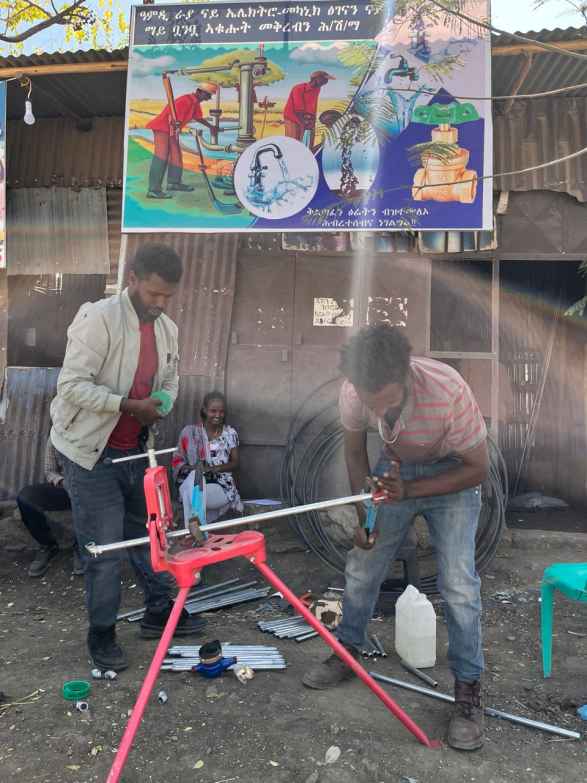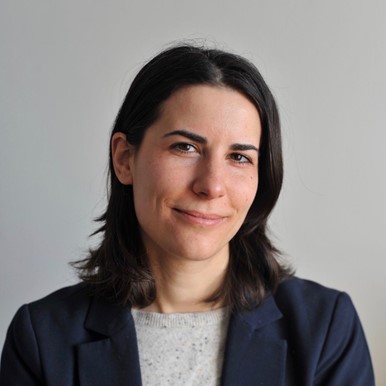From crisis to capacity: How a UK-funded project empowered communities and secured water for generations in Ethiopia

In drought-prone regions of Ethiopia, access to clean water is not only a daily struggle—it’s a determinant of life chances. It shapes public health, food security, and economic opportunity. For many rural communities, unreliable water infrastructure and limited local capacity have long held back progress. But thanks to the UK-funded Strengthening Climate Resilient Systems for Water, Sanitation and Hygiene Technical Assistance Project (SCRS WaSH TAP), supported by NIRAS and WaterAid and implemented across 12 regions of Ethiopia, a quiet revolution is underway.
Across villages and woredas, two different but connected stories have emerged: one of a youth-led micro-enterprise tackling unemployment and water scarcity in Tigray, and another of a large, underperforming water utility regaining strength and public trust in Sidama. Together, these stories demonstrate how targeted support, local ownership, and technical assistance can transform broken systems into engines of resilience and hope.
A future reclaimed: youth turn water crisis into livelihoods in Tigray
In Raya Azebo woreda of the Tigray region, the outlook was bleak for a group of young graduates. Trained in disciplines like civil and electrical engineering, irrigation, and accounting, they faced the all-too-familiar challenge of unemployment. Despite their qualifications, opportunities were scarce—and so was water.
That changed when SCRS WaSH TAP supported them in forming a new, women-led micro and small enterprise (MSE). Named Amdi Raya, the group—13 members strong, 7 of whom were women—was not only given tools, spare parts and start-up capital but also equipped with training in entrepreneurship, financial literacy, and electromechanical water system maintenance through Maichew Technical and Vocational College.

The results have been transformative.
In under a year, Amdi Raya MSE has grown from an idea into a vital service provider in the region’s water supply ecosystem:
But perhaps most powerful of all is the testimony of Awetash, the MSE’s manager, who reflects on their journey:
“Before, there was severe water shortage in our community, and we didn’t have jobs. Since we formed this MSE, we’re very happy. Today, our community has clean water, and we have dignity and opportunity.”
Turning around a troubled utility in Sidama: building strength from within
In southern Ethiopia’s Sidama region, the story was different—but the challenge was the same. Established in 2006 to serve drought-affected communities, the Awada Boricha multi-village utility service (MVS) was once a beacon of hope. Over time, however, the system began to crack under pressure. Despite covering two zones and supplying water to more than 631,000 people across 64 rural kebeles, the utility was beset by weak governance and a non-functional Utility Management Board. This was compounded by frequent leakages across the 622 km of pipes – resulting in high non-revenue water (NRW) losses of 39% – service interruptions, and underperforming infrastructure. Billing was inefficient and revenue collection low and community health was at risk from weak water quality monitoring. In addition, flooded pump houses at the booster stations in Konsore Chafa and Derara Gorbe created swampy conditions, leading to leaks and underground seepage. This posed serious risks to both the surface pumps and worker safety, as power cables were also submerged. With no alternative solution, the utility was forced to pump out the water every other day—driving up operational costs and straining pump house operators. Yet the issue persisted due to frequent power outages and pump failures.
For years, the utility relied heavily on external support just to stay afloat.
SCRS WaSH TAP stepped in with a structured, hands-on approach—diagnosing gaps and offering practical solutions. Through strategic investments and technical capacity building, the utility was transformed.
Key interventions included:
The turnaround was dramatic. In just a few years, annual revenue grew from ETB 3.3 million in 2021 to ETB 13.5 million in 2024—without constructing new infrastructure. Regular water quality monitoring was introduced for the first time, helping protect the health of hundreds of thousands of residents.

Two stories, one vision: water security through local leadership
While the contexts of Amdi Raya MSE and Awada Boricha MVS differ, their journeys underscore a shared truth: that local leadership, when equipped with the right tools and support, can lead transformational change.
One story is of youth and women tackling water scarcity and joblessness in their own backyard. The other is of a sprawling utility brought back from the brink by a renewed sense of purpose, structure, and skill.
Together, they show what SCRS WaSH TAP was designed to do: not just deliver water, but build systems that endure.
And as climate change continues to intensify pressure on Ethiopia’s rural communities, these local models of resilience are more than success stories—they are blueprints for the future.


